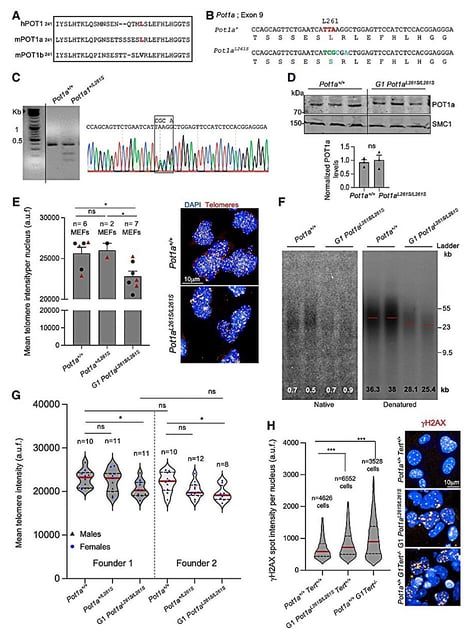Overview
- Researchers show the POT1-L259S mutation prevents telomerase from repairing telomeres, producing short, dysfunctional chromosome ends.
- Knock-in mice carrying the human-equivalent mutation display a telomerase-deficiency-like phenotype with progressive telomere shortening across generations.
- The work marks the first association of a shelterin protein mutation with a degenerative lung disease rather than cancer predisposition.
- Findings suggest telomerase-based approaches under development would not correct fibrosis driven by this specific defect, underscoring personalized treatment needs.
- The study, published in Genes & Development and led by CNIO’s Telomeres and Telomerase Group, was funded by the ERC’s SHELTERINS project.

